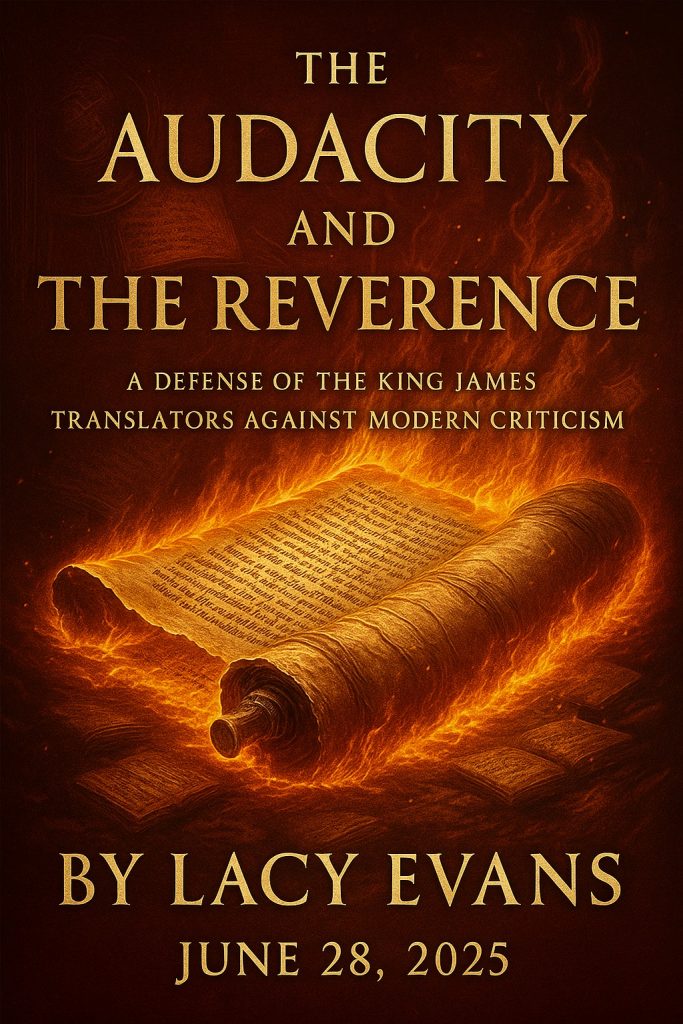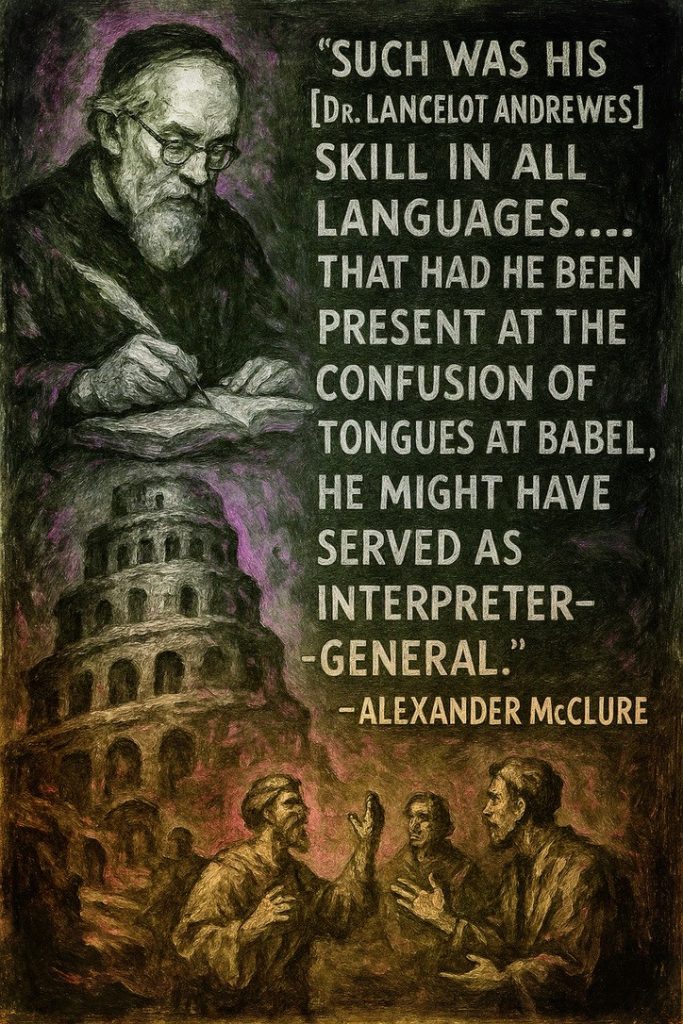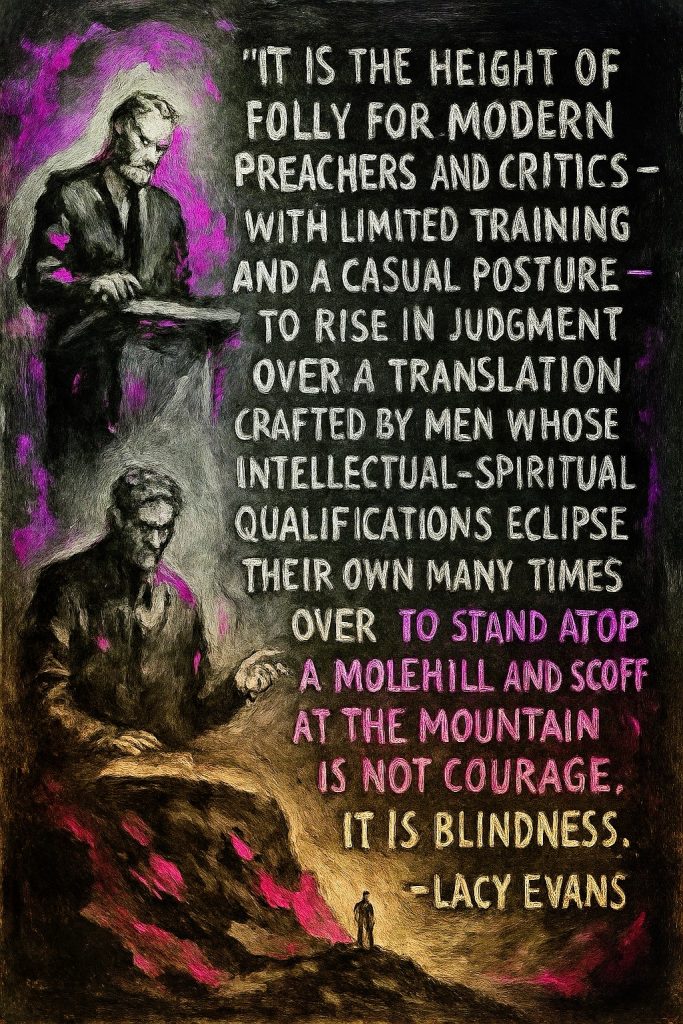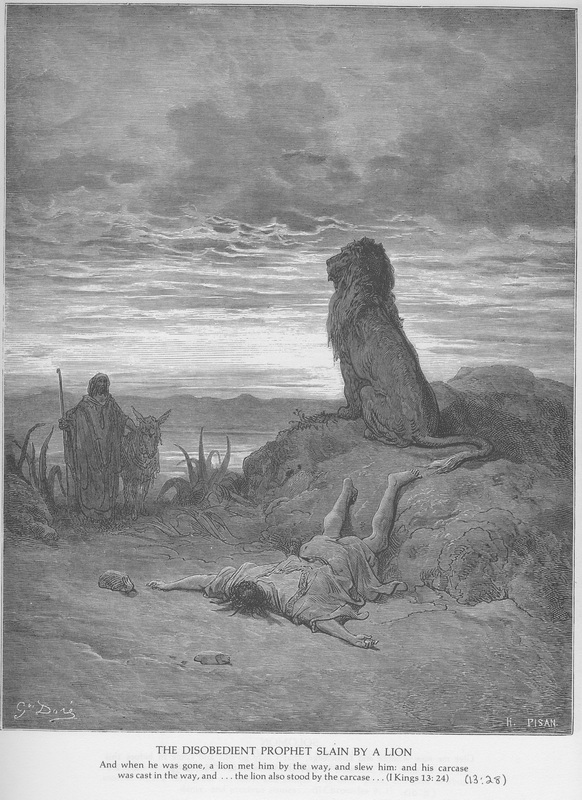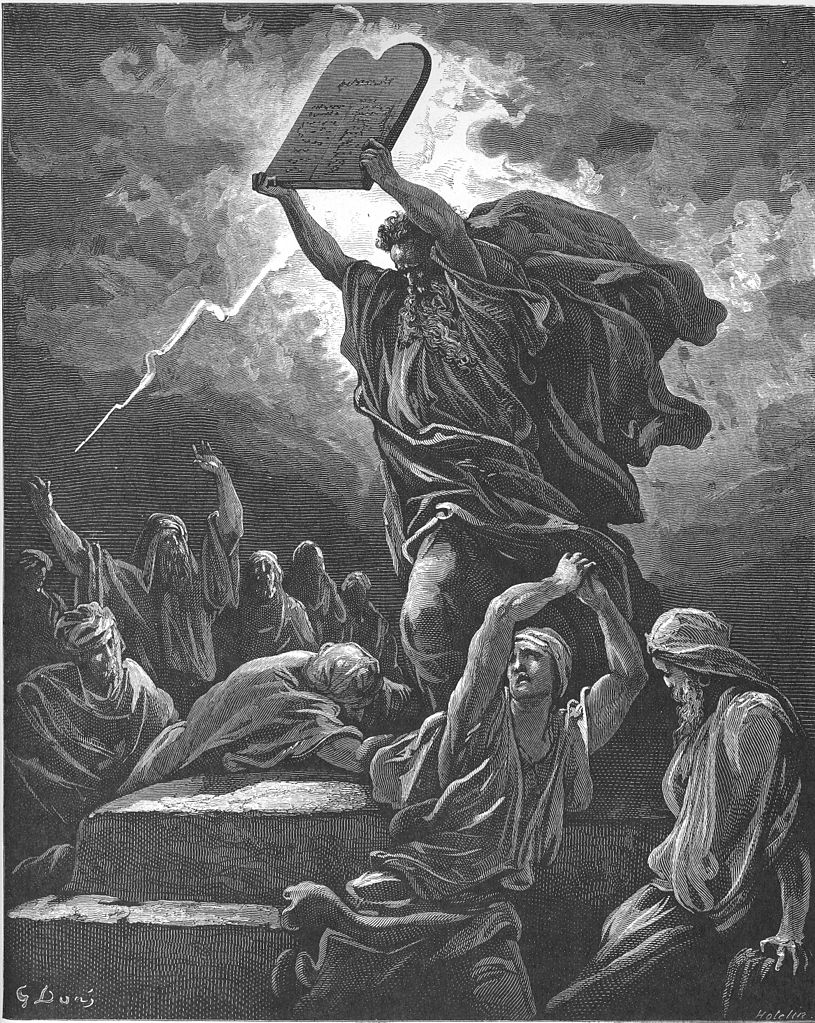RESURRECTION! – The Biblical Method of Preservation
by: Lacy Evans (Nov.1996)
Luke 21:
17 And ye shall be hated of all men for my name’s sake.
18 But there shall not an hair of your head perish.
Without the hope of resurrection, this promise to Christians would be a boldfaced lie to men like Mark the Evangelist (who according to John Foxe was burned by Trajan in Egypt) and John Huss (who was burned at the stake for the sake of the gospel in 1415). Every hair on his head was destroyed. The very last one did indeed perish. But God seems to have a special way to preserve what He wishes to be preserved. When the final trump sounds, Mark the Evangelist and Brother Huss are going to come bursting forth from the Earth each with a full head of hair, not a single one having perished.
Scholars and researchers have written volumes on the preservation of Scripture and more specifically the issue of the King James Bible. I have done my best to examine arguments from both sides of the issue. I have diligently studied White, Carson, Metzger, Barnard, Gipp, Riplinger, Burton and Grady (among others.) Based upon the evidences and arguments put forth, I conclude that the “King James Only” people are absolutely correct. In this article I do not intend to retrace the steps of the decades-old debate. (Indeed, most of the best questions were answered over twenty-five years ago by mean old Brother Ruckman.) Instead I wish to add to the discussion an argument from Scripture that in many ways underlies the whole “King James Only” position. In Psalms 12:6,7, God promises to preserve His words. My Question to the reader is, “According to the Bible, how does God go about preserving things?” It will be found that throughout Scripture, God allows things to disappear or be scattered then He simply raises them up again (usually in better shape than before.)
TYPES ABOUND:
The first question out of the opposition’s mouth is usually this. “Which KJV do you believe is the real Word of God?” Perhaps people who are new to the debate think that the knowledge of the existence of several editions of the KJV will totally demoralize the King James Only position. On the contrary, it follows type perfectly (not to mention that it is a shallow, deceitful argument to compare the revisions of the King James, up until 1769, with the complete departures by modern versions from the common texts). In this segment then, let us examine, in type, God’s method of preservation:
Isa 49:6
And he said, It is a light thing that thou shouldest be my servant to raise up the tribes of Jacob, and to restore the preserved of Israel:
The story of the nation of Israel is a perpetual stumblingblock to those who refuse to believe in God’s power of resurrection and preservation. For centuries, scholars scoffed at the promises to Israel in the Bible’s two Testaments. Men made a science of redirecting those promises to the Church. “How could Israel,” they asked, “ever be found again as a nation on the earth?” Only a few dared to believe that somehow God would raise Israel from the ashes of captivity and dispersion. In 1948, a miracle began! God pulled the “dry bones” of Ezekiel 37 together and has now begun to cover them with flesh. Ezekiel 37 illustrates beautifully how resurrection can be a process, and we are living witnesses of the fulfillment of this prophecy. Which Israel is God preserving before our very eyes? Which Israel is He about to breathe life into by His Spirit? Which Israel will soon pop out of her grave? Where was Israel before 1948? I don’t know but I’m fairly sure that if one examines the evidence, he will conclude that Israel is there now. I believe that all of this is applicable to God’s method of Bible preservation. Jesus Christ is the Word of God incarnate and yet the Father allowed Him to die upon a cross. Once again, God used resurrection to preserve both the Word Himself and all who would believe on that Word.
Where was Jesus before the virgin birth? (Where was the word before 1611?) He was in the fiery furnace with Shadrach, Meshach, and Abednego. He was staying Abram’s hand as he offered up Isaac. He was in the burning bush of Moses. But it wasn’t until Mary and Joseph made their way to Bethlehem that He appeared and was revealed as the Savior of man. Again, where was the “Word” of God when Jesus was in the belly of the Earth? The tangible Word was gone from the face of the Earth and it wasn’t until resurrection morning that it (He) reappeared. Then note carefully the process of restoration. Mary Magdalene was forbidden to touch Him before He was ascended, but afterwards He allowed His followers to handle His scars and see for themselves that it was indeed Jesus. Which Jesus do you believe in for salvation? (Which KJV do you believe?) Is it the mysterious Son of God in the fiery furnace of Daniel’s day, or is it perhaps the helpless babe suckling the virgin Mary’s breast? Maybe it is the Jesus who bled when pierced with nails and thorns. Is your Jesus the one who lay dead in a tomb for three days and nights? Is it the risen Jesus who still can’t be touched? Perhaps the ascended, glorified Jesus is the one you like best. What about the terrible, vengeful conqueror who is to come? Pick one! But watch out because there is an impostor coming who looks so much like the real thing that, if it were possible, even the elect might be deceived. The steady stream of Biblical types is almost overwhelming. God said he could preserve the lineage of Abraham by raising up stones to be “sons of Abraham.” (Mt. 3:9,10) I wonder what would have become of the “originals.” In the wilderness, the Lord provided His people with manna, which the New Testament identifies with Christ, the Word. But not only was God able to provide His people with manna, He was also able to provide the dew to preserve it. God didn’t worry too much when the manna melted away in the sun (Ex 16:21). He just restored it again the next day. The types teach us that God preserves by resurrection and then provides tangible, verifiable proof of His work. There are also several examples where God speaks to us plainly, not in types concerning the restoration of scripture. In the next segment, I will discuss these examples.
TABLETS, ROLLS, PROPHETS AND THE LAW:
Throughout the centuries Christian men have turned away from the plain teaching of Scripture to their so-called sciences and arts. Priests have devised elaborate schemes of works-based rituals to “help” God apply His grace to the hearts of men. Scholars have insisted on the “usefulness” of modern psychology in counseling converts when the whole “science” was fashioned by ungodly men and atheists who believed that we could understand the heart of man without any revelation from God.
Unfortunately, modern textual criticism as defined by scholars like Westcott and Hort tends to fall into this same category when it is offered as a substitute for the miraculous resurrection power of God. I challenge the reader to right now go to your Bible and find some Biblical precedents for the method of preservation espoused by proponents of textual criticism. Meanwhile, suffer me to suggest further Scriptural examples of preservation by resurrection (this time by examining times when God actually preserved His Word in this manner.)
The most famous example occurred at mount Sinai when Moses received the Ten Commandments. In Exodus 32:19, Moses took an inspired, original and smashed it against the side of the mountain. Was God taken by surprise? Did the Word disappear? It most certainly did, until after Moses purified the camp and the people decided to follow God. Then in Chapter 34, God resurrected the tablets by giving them to Moses again. Notice in the first verse what God tells Moses:
Ex 34:1
And the LORD said unto Moses, Hew thee two tables of stone like unto the first: and I will write upon these tables the words that were in the first tables, which thou brakest.
Ex 34:27
And the LORD said unto Moses, Write thou these words: for after the tenor of these words I have made a covenant with thee and with Israel.
God used Moses as an instrument. God wrote it through Moses. But Didn’t God know that Moses was a man? What if Moses might commit “scribal error” or “harmonization.” After all surely Moses played “telephone” in kindergarten (you remember . . . when you send a message around the room by whispering and it ends up garbled.) And besides, why should God write it again? Wasn’t there any “tenacity” to the original? (Sorry Mr. White) Oh and by the way, where was the written Word of God for twenty-five hundred years from Adam to Moses. (Just curious.)
God shows us how He deals with “originals” again in Jeremiah 36:21-23. Jeremiah was instructed by God to write in a roll of a book the words that God had spoken to him against Israel and Judah. (Note that Jeremiah wrote it by another man, Baruch. He didn’t seem too concerned about “scribal error.”) King Jehoiakim obviously didn’t like what Jeremiah (Baruch) wrote so he cut it up with a penknife and called it the NIV (just kidding). Then he threw it into the fire. (Sounds like Jesus). The original perished (just like John Huss’ hair.) But in verses 28-32 God writes it all again. Look at verse 32:
Jer 36:32
Then took Jeremiah another roll, and gave it to Baruch the scribe, the son of Neriah; who wrote therein from the mouth of Jeremiah all the words of the book; which Jehoiakim king of Judah had burned in the fire: and there were added besides unto them many like words.
Hmmmmm! Original number two is new and improved! Surely God will keep it around. NOT! No, in fact this second “original” winds up at the bottom of the Euphrates wearing cement shoes (Jer. 51:61-63). One final thought . . . Jeremiah had to keep some other copy of this account in order for it to have found its way into our Scripture. Which original do you like the best, the first one or one of the two resurrected ones? Go ahead pick one!
The question arises in my mind, “What would cause the word of God to be lost and thus need to be resurrected?” When we turn to the Scriptures we find that God takes away His word when His people are disobedient and He restores it when they return and seek Him:
Lam 2:9
Her gates are sunk into the ground; he hath destroyed and broken her bars: her king and her princes are among the Gentiles: the law is no more; her prophets also find no vision from the LORD.
Jeremiah here is lamenting a terrible judgment that has come upon the nation of Israel because of their disobedience. Not only does Jeremiah see the carefully planned out destruction of Israel, but also he sees a removal of the divine revelation (the law and the prophets.)
We see just the opposite in II Kings 22. After the wicked reigns of Manasseh and Amon, Josiah took over as king. The Bible speaks well of Josiah (2Kings 22:2) Josiah provided for the repair of the temple of God.
During the repairs, the book of the law was found. (It was found in the broken down neglected temple of God, not in a pristine Babylonian temple like the Vatican). As a result of having a good king who followed in the steps of David, the law was restored to Israel. Where was it before? It was hidden in the ruins of the temple buried perhaps in mounds of earth awaiting resurrection. How do we know that it was the perfect word of God? Read the chapter! It started a revival:
2 Ki 22:13
Go ye, inquire of the LORD for me, and for the people, and for all Judah, concerning the words of this book that is found: for great is the wrath of the LORD that is kindled against us, because our fathers have not hearkened unto the words of this book, to do according unto all that which is written concerning us.
The resurrection of the word sparked the fear of God (the beginning of wisdom) in the hearts of the Israelites. Is this what we see in History? Does the word of God seem to disappear during the dark ages of the Roman Catholic millennium and then mysteriously reappear when reformers begin to seek God and just in time for the greatest awakening in the history of humanity? Be honest now. If you don’t, God’ll get you. Hmmm!
LOOSE CANON:
So the doctrine I’m discussing is the restoration of lost truth by the process of resurrection. James White called it “a dangerous idea” during a recent E-mail debate with my pastor, Joey Faust. Did Mr. White miss the Dark Ages and subsequent Protestant reformation? Mr. White (and every other one of those fellas that he drinks coffee with) does however believe in an absolute closed canon composed of the sixty-six books found in my KJV (and his version[s].) He hasn’t admitted it yet, but he knows that it wasn’t until around the 17th century that the exact canon now recognized by Fundamentalists was established perfectly in the mainstream (i.e. with no hidden apocryphal books in Daniel or Jeremiah.)
What are the reasons that Christianity rejected the Apocrypha and accepted the book of Revelation? How do you as a Christian, before God, know that the 66 books in your Bible are the Exact ones God intended to be there? Believe me there are plenty of books that didn’t make the cut and several that barely got in, so how can you be sure? Well, as in the cases from the Scriptures (both in type and in clear view) discussed above, God gives us evidence.
James White writes concerning the canon (King James Only Controversy p.47) “God worked with his people over time, leading them to recognize what he had already done through the act of inspiration.”
If God can restore the absolute canon, and it can be proven by the witness of history and the testimony of the church, then He can do the same thing with the actual words that make up the 66 books in 1611 and we offer the same evidence for the establishment thereof. Is that dangerous to you? It is if you make a living teaching Greek and the fine art of textual criticism.
If God can’t restore something that was lost then every life martyred for any major Protestant doctrine has been in vain. Men didn’t trust in the doctrine enough to die for it until they were sure that it was the Word of God from which they learned the doctrine.
CONCLUSION:
I commend James White for actually saying (King James Only Controversy p. 36) what every one of his contemporaries believes:
“All of these things [scribal errors] contributed to the simple fact that there is not a single handwritten manuscript of the Bible, in Greek or Hebrew, that does not contain, somewhere, an error, an oversight, a mistake. To err is human.”
If human error is your main stumblingblock, then I can’t see how you can believe that any manuscript ever was inspired, including the originals. I read page after page of conjecture and assumption concerning scribal error. (“We can’t even write today on a computer using spell-check without making mistakes. What if the scribe’s pet python swallowed the papyrus for a few days and the poor little snake had to wait for it to pass? What if a Klingon spilled a flask of bloodwine on the manuscript? Blah! Blah! Blah!) In all this, I never hear one mention of the power of God. Hey fellas! You forgot your shoes! What happened in the Bible when bad things happened to the written Word? God resurrected it!
I cannot for the life of me understand why a person couldn’t take a standard textbook for Textual Criticism 101, go down the list of possible ways that a manuscript can get mutilated (due to human error), and not be able to apply each one of those possibilities to the autographs. How do we know Jeremiah or Moses didn’t commit “harmonization?” How can we be sure Paul, because of his poor eyesight didn’t misspell a word? Perhaps, after one of his shipwrecks, he might have had water in his ears and heard God wrong. My point is that you must either believe in God’s power or not believe.
Deu 17:
15 Thou shalt in any wise set him king over thee, whom the LORD thy God shall choose…
18 And it shall be, when he sitteth upon the throne of his kingdom, that he shall write him
a copy of this law in a book out of that which is before the priests the Levites:
19 And it shall be with him, and he shall read therein all the days of his life: that he may learn to fear the LORD his God, to keep all the words of this law and these statutes, to do them:
There is absolutely no Biblical precedent for God’s inspiration being applied exclusively to the autographs. When the Bible says “scripture” it is always referring to copies. Despite the fact that those copies are subject (or would seem subject) to human error, God calls them inspired:
2 Tim 3:16
All scripture is given by inspiration of God…
Now unless you attempt to redefine “inspired” to mean “you can kind of get the gist of what God intended to say through the original author,” then I would say your sailboat’s just about sunk. Do you believe the originals were inspired? On what Biblical grounds? What proof can you offer that doesn’t equally apply to the canon and the KJV? I don’t think that opponents of the KJV Only position are really sure that there ever were any perfect manuscripts.
Of course, the originals were inspired and so are some copies. The question is which one(s). Is God able? Is he willing? Has He revealed it as part of his nature to resurrect dead things? If not, then we are of all men most miserable (1 Cor 15:19).
If it is any consolation to my opponents in this debate, indeed if it will avoid division, then let me admit possible defeat. I agree with you at least for a while: For one thousand years when the Roman whore ruled with an iron fist, there was not one copy inspired to absolute perfection on the planet. The only source of truth was the “witness of the multitude of copies.” During the darkest age of human history, men clung to the “tenacity of the texts.” True seekers of God poured over “relatively reliable” texts praying to be able to discern the errors. But when men like Walter Brute, Martin Luther, and John Calvin, etc. began to search through the rubble, soon The Book was found!:
2 Chr 34:
14 And when they brought out the money that was brought into the house of the LORD, Hilkiah the priest found a book of the law of the LORD given by Moses.
15 And Hilkiah answered and said to Shaphan the scribe, I have found the book of the law in the house of the LORD. And Hilkiah delivered the book to Shaphan.
16 And Shaphan carried the book to the king, …
Concerning the resurrected perfect Word: first God gathered the bones, then He put flesh on them, and finally He breathed life into them. God saw fit to allow Christ to die, then raised Him from the dead to appear before Mary Magdalene, and finally took Him up to heaven to complete the resurrection process after which He appeared to His disciples and was touched with human hands. It took some of them a while to recognize Jesus, especially those who had forgotten His promise of resurrection. I pray friend that you remember the promise and recognize the living Word. How will you know it’s him? Look for the scars. If you saw them in the restored canon, or in restored Protestant truth, then you’ll see them in the restored Holy Authorized King James Bible 1769 Oxford Edition.
